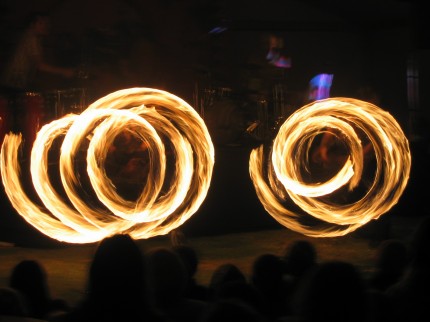Posted: 30 August 2011
Welcome to the K-hole
Ketamine isn’t just for animals — it has been given to humans for over 40 years.It has a very good safety record when used as an anesthetic and pain killer in clinical settings, however over the last 20 years ketamine has left the operating theatres and vetinary surgeries to become an international party drug. It has spread through diverse cultures and populations from London and the USA to Hong Kong and Israel, shifting from medical use to become the drug of choice for clubbers, school kids and even college professors.
From tranquilising horses (and giraffes, and rhinos) to abundance on the social scene — why and how are we taking ketamine?
Ketamine has been described as ‘the ultimate psychedelic’, with early patients coming around from ketamine sedation to report ‘emergence phenomena’ – a range of hallucinations and bizarre experiences. Of course one man’s side effect is another person’s pleasure and Timothy Leary – a lover of LSD and all things trippy – described ketamine as ‘the ultimate psychedelic’. Although people develop a tolerance of ketamine very quickly some people use it compulsively, with the first reports of doctor’s developing their own ketamine problems as early as the.

Ket isn’t just about snorting and doesn’t just come from dealers: it is typically bought as a powder from diverted pharmaceutical supplies, street dealers or bought over the internet and can be snorted, taken orally or injected. Ketamine’s effects are strongly dose related and include feelings of arousal and euphoria, out of body and near death experiences. Today it is often taken in limited amounts or in combination with other substances to alter these effects, as most people aren’t looking for a near death experience on the dance floor.
Ketamine is not without it’s risks.
An average dose of ketamine not taken with other drugs, the biggest risk is accidental trauma such as injuries from falls and sprains that may go unnoticed in a K haze. Ket’s ability to make you think bizarre things and put you out of action can sometimes lead to serious accidents – so keep an eye on your friends and don’t take a bath after ketamine, drive, or play with drills. Other quite common acute short-lived harms include chest pain, abdominal pain (k cramps), urinary problems and the occasional bad trip.
Can you end up dependent on ketamine? Yes — but it depends on how you define dependence.
Although even regular users don’t seem to experience major withdrawal symptoms when they stop – beyond an understandable lack of sleep, irritability and pain – many people in our study did report other symptoms, that would suggest that at least some people out there do end up dependent. They lose control over their use, continue to use despite having problems, build up tolerance and experience a craving or compulsion to use.